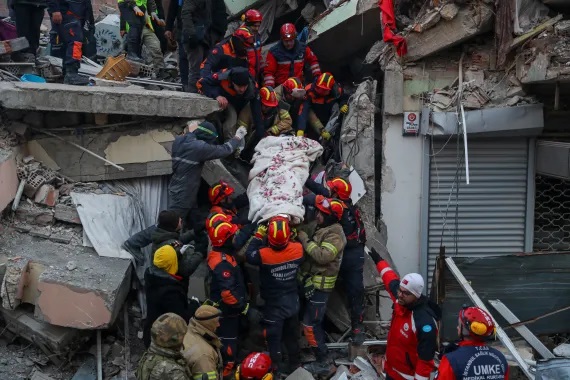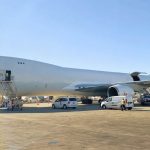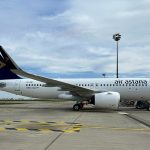German team takes off to Turkey’s south-eastern province with 16 tonnes of recovery equipment
A 50-strong team from Germany’s Federal Agency for Technical Relief (THW) took off from Cologne Bonn Airport recently to Turkey’s south-eastern province of Gaziantep with 16 tonnes of recovery equipment.
The huge 7.8 magnitude earthquake hit south-eastern Turkey, near the Syrian border, in the early hours of 6th February, closely followed by numerous aftershocks, including a 7.5 magnitude quake – almost as devastating as the first.
The team is part of a rapid deployment unit, which specialises in locating and rescuing people who have been trapped by the natural disaster. Within a few hours of being alerted, the team was ready to take off, having packed their equipment in light metal crates that can be transported in conventional commercial aircraft.
The plane arrived at Gaziantep Airport in Gaziantep province, with four trained rescue dogs for biological detection and rescue tools, including acoustic detection devices and technical recovery equipment.
This will enable the team, including THW volunteers from Germany’s North Rhine-Westphalia, Hesse, Rhineland-Palatinate, Saarland and Bavaria regions, to quickly and effectively locate and rescue people who have been buried.
Alongside the THW team, during the night from 6th-7th February, a plane took off from Cologne to carry a group from International Search and Rescue Germany, which has been working in the affected areas since early on 7th February.
“Our emergency services are specially trained for earthquake operations like this one. The team has rescue equipment with them to free people who have been buried from the rubble,” THW President Gerd Friedsam explained.
The THW is preparing further deployment options for aid in the areas impacted by the earthquake.
“We are in the first phase after the disaster. At the moment, the focus is clearly on rescuing and providing first aid to the people affected, and that is exactly what our team is trained in,” Friedsam emphasised. “The main thing is to help the survivors. Especially with the low temperatures, things like tents, sleeping bags and generators are extremely important.”
The Rapid Deployment Unit for Water Abroad is also ready to travel to the region, providing the ability to supply clean water to up to 30,000 people a day through drinking water treatment plants.
For foreign assignments, the THW is part of the EU’s civil protection mechanism. With its experts, technology and experience, it is in demand worldwide on behalf of the federal government when emergencies require it. In addition to bilateral aid, this also includes technical and logistical tasks within the framework of the European Union’s civil protection mechanism and on behalf of UN organisations.














